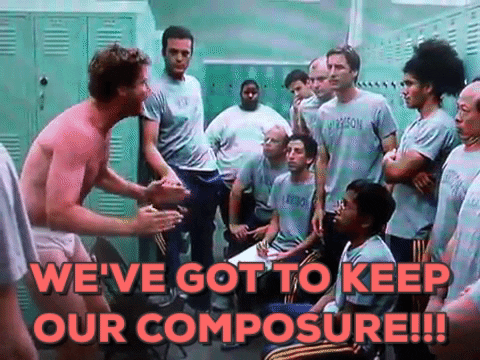“It’s going to be bad, Dr. Natasha. Tell your nurses to get ready.”
“I’ll…. Just let my husband bring him.”
“Don’t mention anything until the end of the check-up. She is going to freak out.”
I’ve never met a kid who loves shots. But for kids who are exceedingly anxious about getting injections, parents dread the shot-induced skirmish. Although most of these kids are able to get through these visits with support and care, coming to the doctor’s office can become so stressful that routine visits are skipped and preventable issues get missed.
Directly addressing and treating needle phobia and shot anxiety has the power to improve a person’s health care over their lifetime.
Needle fear is real. In the U.S., 3 to 20% of the population is needle phobic. The exact number is hard to determine since these individuals often avoid the medical system. The intensity of fear ranges from a “nervous stomach” to debilitating panic attacks. For people with needle phobia, the anxiety biologically heightens the pain response. This chemical reaction increases the immediate pain sensation the person experiences in the short-term, while priming long-term memory for additional fear response. This cycle repeats over time, potentially worsening the fear and anxiety as a person ages.
Needle fear matters today. A number of people are refusing the Covid vaccine due to a fear of needles. Unfortunately, the untreated phobia is leaving those individuals susceptible to a deadly disease. In addition, the CDC has reported that many of the “side effects” of the Covid vaccine are actually due to anxiety, not the vaccine itself. Addressing this anxiety can help to improve the vaccination experience and increase the likelihood an individual may complete their vaccine series.
Needle fear matters for the future. Shot anxiety is a marker for future vaccine hesitancy. Managing shot anxiety and needle phobia is one pathway to long-term vaccine acceptance for my patients today, and their future children.
We cannot make injections pain-free for every child. That being said, complete elimination of pain is not necessarily the goal. Working through a painful experience and managing this type of stress is an important part of growing up. For kids with needle fear, achieving this ability requires a dedicated and supportive plan.
Tips and tricks for needle fear:
Assess your child’s need for support. Not all kids need these techniques. Most of the kids in my practice don’t love shots, but they willingly and calmly get through them.
Stay on track. Needle fear does not develop until after the age of 4. Following the AAP/CDC vaccine schedule will get all required vaccines administered before that age.
Be careful of words that make it worse. Apologizing about a vaccine, providing excessive reassurance and offering excessive empathy increase “anticipatory fear.” Rather than offering comfort, our emotional overcompensation results in the perceived pain of the injection being amplified. In other words, when parents talk too much about the shots, kids get more worried and fearful than if fewer words were spoken. So, keep it short and sweet. When shots are discussed, use honest language, keep explanations brief, stay calm, keep a matter-of-fact attitude, and don’t project a personal concern about discomfort onto the kids.
Shots hurt. Don’t lie about it. I like the phrase, “Getting a shot can hurt a little, but it’s helping your body get stronger. Any pain you feel will go away quickly. I’ll be here to hold your hand, if you like. Or, you can sit on the exam table by yourself. Which would you like to do?”
Change the visit structure. My experience is that for kids with needle fear, getting the shots done as soon as arriving to the office is the best approach. This shortens the time that anxiety can build during the well visit, making our checkup more productive. Ask your doc’s office if your child’s shots can be given right away.
Grab the screens. Screen time can be a welcome distraction. Grab the phone, iPad or gaming device… And zone out. Wearing headphones seems to improve the effect. A simple VR experience has also been very effective for some of my teen patients.
Trick the pain receptors. Pain perception is a complex process with lots of parts. By “tricking” one part of the process, pain perception can be diminished. Common ways to do this include ice packs, vibration devices, “shot blockers,” and (my favorite) the cough trick.
For tweens and teens, ask for a moderately-hard cough as a “warm-up” followed by another cough as the needle is inserted. My patients are always surprised by how much this simple trick helps decrease pain.
If multiple injections are needed, request the most painful shot be given last. Trust me, we know which shots hurt the most.
Grab the “Elsa spray.” Ethyl chloride is a topical anesthetic spray used to decrease injection pain. After being sprayed on the skin, the ice-like effect numbs the skin for about one minute. Ethyl chloride has been shown to lessen injection pain, and it’s quick and easy to use. Ask your doc’s office if this is something they supply.
Topical lidocaine cream is available over the counter. Apply a thick layer of cream to the location of the injections at least 30 minutes before arriving at the office. (Find instructions here.) Alternatively, prescription-strength topical anesthetic creams and patches are available with your doc’s approval.
For kids with extreme anxiety, short-acting anti-anxiety medication can be prescribed. If your child is needing this level of support, seeking professional help to directly address needle fear is the best long-term solution. There are numerous evidence-based treatments —Ask your pediatrician for a recommendation.
For all kids, directly addressing needle fear is important to de-escalate the short-term stress and to minimize the long-term physical and emotional trauma that injections may cause. The good news is that needle fear is a treatable problem. And the long-term benefits of successful treatment may extend for a lifetime and beyond.
Happy summer,
In other news:
I am thrilled to be a new contributor to Forbes Health. My column “Dear Pediatrician,” will feature answers to audience submitted questions. Have a topic we need to cover? Send in your questions to dearpediatrician@forbesadvisor.com.
Dr. John Torres and I spoke on a recent Facebook Live episode of “Doc to Doc.” We talked about pandemic-y stuff, including Covid vaccines for kids. It was a fun and honest conversation. (Even though I was doing my best to hold off a coughing attack for most of the interview…)
Did you miss the latest Masks Off Live? Dr. Nicole and I dished about how to navigate this phase of the pandemic with young kids, myocarditis and the mRNA vaccines, and offered our opinion on your Pandemic Scenarios. Follow along to catch us live next time.
Thanks for getting to the bottom of the letter. Learn something new? Hit the heart. Growth is my fuel -- I’d appreciate sharing this letter with someone you know!








It normal to be scared of shots and have you ever had to hold someone down for shots Doctor Burgert?